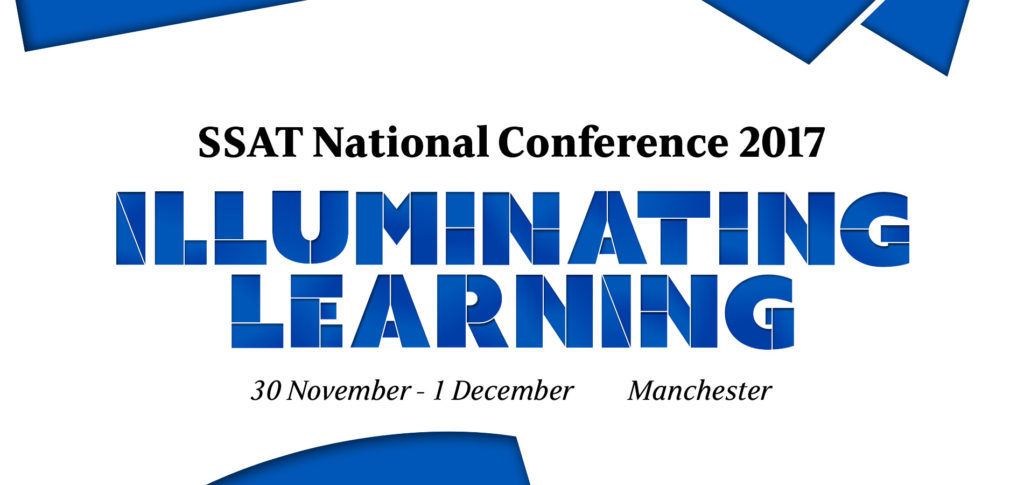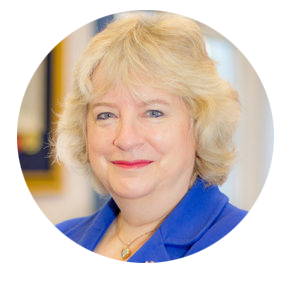
Main stage speaker Dame Alison Peacock, Chief Executive of the Chartered College of Teaching and Anne-Marie Duguid, Director of Education for SSAT, explore the journey to the college’s creation, and what the future could entail.
 Why was SSAT involved in setting up the Chartered College?
Why was SSAT involved in setting up the Chartered College?
Our values aligned. We have always believed that teachers make lives and all our actions have been driven ‘by teachers for teachers’. We see the importance of being evidence-informed in developing our outstanding teachers and future leaders. Our work with SSAT Lead Practitioners has been instrumental in developing teachers as professionals, as evaluators of impact steeped in classroom practice. The thought of a new independent, chartered professional body set up specifically for the teaching profession chimed well with us. It was simple: this will benefit our teachers and our schools in the future and we felt best placed to provide our support to enable it to happen, following the Prince’s Teaching Institute (PTI) Blueprint published in February 2014.
And so in October 2014 SSAT joined forces with PTI, Teacher Development Trust (TDT) and the then College of Teachers, to form the Claim your College coalition. This ‘gang of four’ worked tirelessly behind the scenes with generous philanthropic support to further promote the creation of a new college of teaching. Weekly meetings, healthy discussions and debates helped us refine and shape the basis, from which the profession would then take it forward. In February 2015 the coalition submitted its collective response from teachers, leaders and key educational organisations to the DfE’s consultation ‘A world-class teaching profession’. The charity was formed in April 2015. And with the help of a recruitment agency, the selection committee appointed the Chartered College’s first founding trustees, who started in September 2015.
Without the support of so many key people – teachers, ambassadors, philanthropists, partners and a variety of organisations – the Chartered College would never have existed. We held road shows, discussion dinners and events with teachers, leaders, key organisations and supporters, to shape the college and raise awareness. It was essential to gain momentum and to get to a stage where teachers could take it over and take it to the next level.
Many reasons were given as to why this could and indeed should not happen… but so many more compelling reasons why it should. It was vital to ensure we would not be at the behest of a changing government or policy, and that with a royal charter we could stand the test of time.
We will not be at the behest of changing government or policy, and with a royal charter we can stand the test of time
It will not happen overnight but, with gathering momentum, we invite you to imagine what it could be like in 20 years’ time.
I remember how proud I was at the Houses of Parliament as the Chartered College was ‘officially’ launched. It was time for us to step back and let our ‘baby’ grow and flourish in the next exciting phase. To have been one of the founding directors, and part of this legacy, has been an honour.
The profession came together to make, what had for so long seemed impossible, possible. SSAT welcomes the Chartered College of Teaching and its new team, and looks forward to its next phase under Alison’s leadership.
 Dame Alison Peacock takes up the story….
Dame Alison Peacock takes up the story….
Excellent teaching transforms the lives of children and young people. The Chartered College of Teaching believes the way to achieve and maintain excellent teaching and leadership is by connecting, informing and inspiring teachers, enabling the profession to gain agency and voice.
Since its launch in January, the college has begun to build a professional research-informed network alongside SSAT, teacher unions, subject associations and learned societies. As a member-driven organisation, it could not have achieved so much to date without the support, energy and enthusiastic commitment of the teachers and organisations that have been working with us.
From the outset, making evidence-informed research accessible to members has been a key aim. Teachers need access to a broad range of skills and knowledge that can be adapted and fine-tuned to meet widely varying education contexts and pupil needs. Uniquely, the Chartered College is able to provide extensive access to a research database and document summary service as part of its membership offer; access to the 2000+ journals is provided via Ebsco. The value of evidence is not just in the rigour of the content and its potential impact, but also lies in its relevance and accessibility for educational practice. Providing access to the latest research, case studies, articles and examples of good practice offers a significant benefit of being a part of the college. The next stage of this work is to produce useful research summaries, in collaboration with teachers, school leaders and academics, to support the development of teachers’ skills for interpreting and interrogating research evidence.
Building confidence and expertise
The aspiration is that an evidence-informed approach to teaching will build confidence and expertise throughout the profession.
At the end of July, more than 50 founding networks were announced, providing centres to bring together members to work on issues of direct concern to classroom practice, wherever they are located and whatever their setting, interests and experience.
There are three types of network: local, thematic and hub networks, and these differ in scale, focus and the types of opportunities they will be presenting. Through these local and regional networks, events, an online community, and a termly journal – Impact – which focuses on evidence-informed practice, the Chartered College is providing teachers and school leaders with the resources they need.
Chartered Teacher programme
Our next key milestone is the development of the Chartered Teacher programme, along with the advancement of a range of CPDL resources to support career development for teachers across all phases. The Chartered Teacher programme aims to offer career-long opportunities for all who teach, and will be tailored to the individual teacher’s needs and interests.
This new status is an important mechanism for raising the quality of teaching and learning with the goal of improving the lives and life chances for all children and young people. It will be grounded in a framework of professional principles arrived at in consultation with members: these principles delineate what accomplished teaching is and what practices and values exemplify it.
The Chartered Teacher programme aims to offer career-long opportunities for all who teach, and will be tailored to the individual teacher’s needs and interests
To achieve Chartered Teacher status, members will undergo a rigorous assessment
process, ensuring the highest standards are not only achieved but also sustained throughout
a teacher’s career. The ambition is to establish a fellowship of Chartered Teachers whose
expertise advances educational thinking, practice, and research. This status will not only
provide increased recognition for teachers and their contribution to wider society, but also contribute towards establishing teaching as a respected career to strengthen retention of
teachers working in the profession.
Membership: 8,000 and rising
In its first seven months, the Chartered College has grown rapidly to over 8,000 members. Covering all phases of education, sectors and subject specialisms, it is connecting a diverse community of teachers to share their ideas and knowledge. In the coming months, the range of resources, collaborative opportunities and tools available to members will continue to expand.
The long-term plan is for the college to become established as the go-to destination for teachers: a destination where they can develop the evidence-informed expertise necessary for securing the best outcomes for all pupils.
We thank SSAT for their role in helping to establish the foundations of the Chartered College and their continued support now.
Read more in the NC17 blog series: How a frustrated teacher became an expert in educational psychology
Book your place at SSAT National Conference 2017: Illumination learning.
Find out how to become an individual member of the Chartered College.

 Why was SSAT involved in setting up the Chartered College?
Why was SSAT involved in setting up the Chartered College? Dame Alison Peacock takes up the story….
Dame Alison Peacock takes up the story….